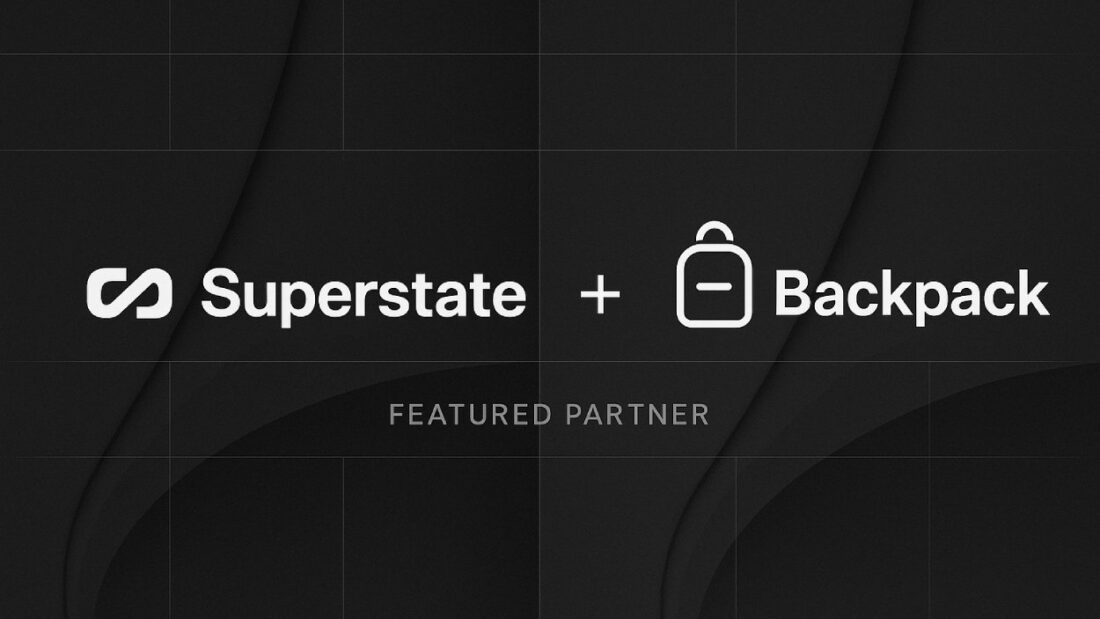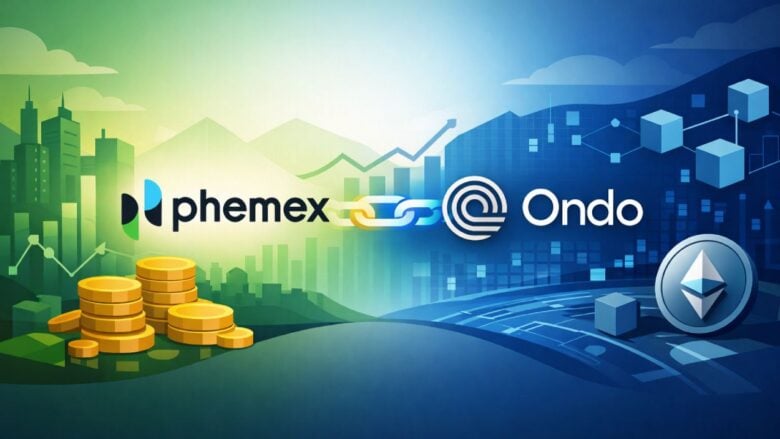Qualified investors outside the U.S. will soon be able to trade SEC registered stocks natively onchain, thanks to a new partnership integrating Superstate’s Opening Bell into Backpack Exchange.
Key Takeaways
- Backpack becomes the first centralized exchange to support issuer led, SEC registered equities that exist natively onchain
- These tokenized stocks carry the same CUSIP codes as traditional stocks and give users direct shareholder rights, including dividends and voting
- Eligible non U.S. users can trade real public company shares alongside crypto and stablecoins on one platform
- Supported equities and rollout date will be announced in the coming weeks
What Happened?
Backpack, a crypto exchange and wallet platform, has announced a strategic integration with Superstate to bring real U.S. equities onto blockchain rails. Through this partnership, users will eventually be able to buy, sell, and trade SEC registered stocks onchain using Superstate’s Opening Bell infrastructure.
Unlike existing tokenized stock products such as Kraken’s xStocks, which are custodial wrappers representing real equities, this new model issues native tokenized shares. The equities themselves are issued, transferred, and settled directly onchain, not just tracked externally.
1/ Superstate has partnered with @Backpack as the first centralized crypto exchange to support native onchain equities.
— Superstate (@SuperstateInc) October 15, 2025
Eligible non-US investors will soon be able to trade real, SEC-registered public company shares (not wrappers) alongside crypto and stablecoins. pic.twitter.com/8a3LMdnCsK
Investors get direct ownership and all the rights that come with traditional stock ownership, including dividends and voting rights. These tokenized stocks also share the same CUSIP identifiers as those listed on the NYSE or Nasdaq, preserving their identity within legacy finance systems.
While the official list of supported equities is still pending, both companies confirmed they will reveal the first supported stocks and timeline soon.
Bridging Traditional Finance and Blockchain
This move represents one of the strongest attempts yet to merge regulated public markets with crypto infrastructure. The entire system will be governed by institutional grade compliance, including KYC, jurisdictional controls, and legal safeguards.
By combining the flexibility and liquidity of crypto markets with the regulatory strength of traditional securities, Backpack is laying the groundwork for a unified financial future.
Benefits for Traders and Issuers
For traders, this new model introduces more assets to trade, greater margin and collateral utility, and 24/7 market access. For issuers, it opens the door to millions of crypto-native investors who previously had limited exposure to regulated equities.
A New Standard in Tokenized Securities
Most existing tokenized stocks in the market are synthetic, lacking the legal and technical clarity of real securities. The Superstate and Backpack approach ensures tokens are real stocks, issued under U.S. securities law, and managed through a registered transfer agent.
Still, some skepticism remains. Backpack recently faced criticism from users due to platform issues during a liquidation event. As a result, all eyes will be on how they handle this rollout. Maintaining trust and reliability will be essential for long-term success.
CoinLaw’s Takeaway
In my experience, the gap between crypto and traditional finance has always felt too wide. What I found compelling here is how Superstate and Backpack are closing that gap without cutting corners. These are real stocks with real rights and not just tokens pretending to be equities. If this model takes off, it could reshape how we think about stock ownership, trading, and global access. But they’ll need to deliver on user experience and compliance, or this big idea could fall flat. Still, I’m optimistic. This is one of the most promising signs that regulated onchain finance is becoming real.


































































